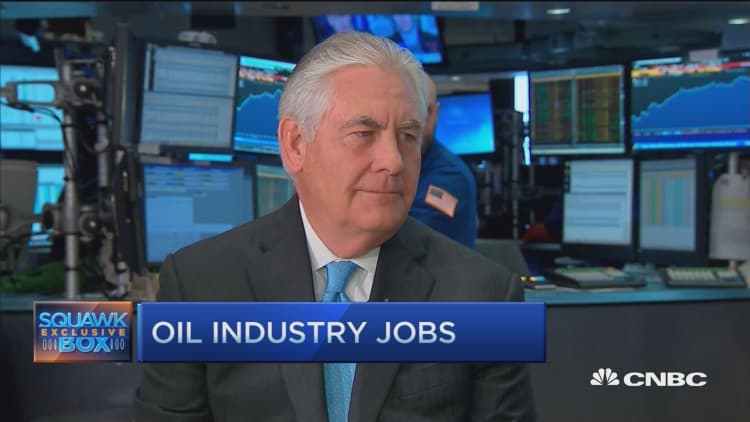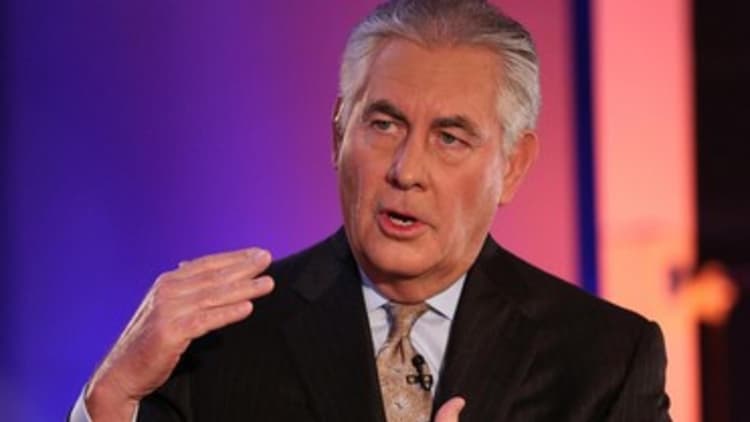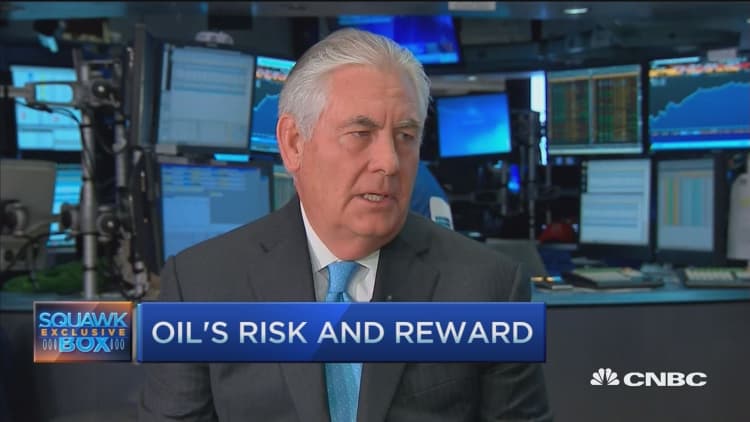


Extracting shale oil at current prices can yield a modest return, Exxon Mobil Chairman and CEO Rex Tillerson told CNBC.
"[But] we wouldn't do that because we think our resources are worth more than that," Tillerson told "Squawk Box" in an interview that aired Thursday, a day after Exxon held its annual analyst day at the New York Stock Exchange.
"Our development costs in the Permian are about $10 a barrel now; the Bakken is down to $11. Our cash cost is $10," he estimated.
Located in Texas and New Mexico, the Permian Basin, the nation's most prolific oil-producing geological formation, has seen revival in recent years with the advent of horizontal hydraulic fracturing, or fracking. The Bakken Shale region, which has also seen a fracking boom, includes parts of North Dakota and Montana.
"When you get to $40 [per barrel], particularly companies that this is really all they have — it's a one-play opportunity for them — I expect there will be some volumes [coming back]," Tillerson said.
The last time the U.S. benchmark West Texas Intermediate crude was above $40 per barrel was in December. Since then prices have been languishing in the $30s and even mid-$20s. WTI broke a psychologically key level of $26.19 on Feb. 11, falling to 13-year lows.
Since then, U.S. oil prices have surged more than 25 percent, as of the Wednesday's $34.66 settling price in New York. But even with those gains, crude was still off more than 65 percent since June 2014.
"We're going to continue to have some volatility, but it's probably gonna bounce around in ... a narrower range," Tillerson said.
Parts of the Texas economy have been hit harder than others by the downturn, he said. "Certainly [in] Midland, you sense it. You drive out there and there's a forest of rigs that are sitting on the side of the highway stacked. And you know every one of those rigs had a crew of people working on it six months ago."
"In Houston, it's having an effect, but Houston has so diversified its economy over the years that this is nothing like the 1980s, which really devastated the Houston economy," he said. Oil prices collapsed in 1986 in the midst of a crude glut. It took decades to reach all-time highs of about $147 per barrel in July 2008.
The bottom line, Tillerson said, Texas has been able to weather the current oil collapse. "I'd say by and large the state's doing fine."


